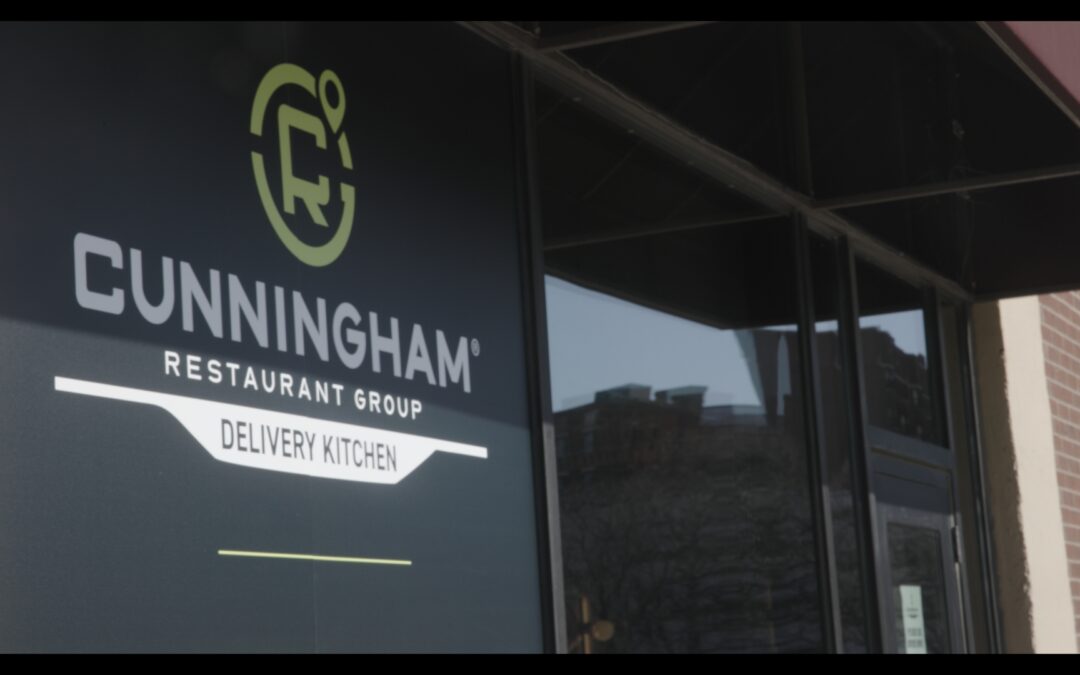The traditional ghost kitchen model is blowing up.
Formerly a pioneer in the industry, Kitchen United no longer operates physical storefronts. Operational challenges have plagued food trailers operated by Reef Technology, whose presence in the US has diminished widely.
However, a different approach seems to be gaining traction: consolidating multiple brands within a single central kitchen. Marc Lore’s Wonder has found success with a hub-and-spoke delivery model operating in New York, New Jersey, and Pennsylvania. Another notable player in the evolving ghost kitchen landscape is Empower Delivery.
The company’s software was created for the ghost-kitchen concept ClusterTruck, an Indiana-based delivery-only restaurant company that sells food directly to consumers from a central kitchen. The company delivers meals using its own fleet of gig workers – bypassing third-party delivery apps.
That idea intrigued Cunningham Restaurant Group CEO Mike Cunningham, who became an investor in ClusterTruck. CRG runs 43 restaurants under 19 banners in the Midwest. Most of the restaurants are in Indiana, and range from quick-serve to fine dining establishments.
Yet, CRG has avoided delivery for years with the exception of its college-town brand, Bru Burger Bar.
The company briefly had a relationship with DoorDash during the pandemic when restaurants were in lockdown. Though delivery was a lifeline for most restaurants, CRG found the experience dissatisfying and pulled the plug as soon as dining room lockdowns were over.

Cunningham Restaurant Group has tapped Empower Delivery to streamline delivery.
But delivery couldn’t be ignored for too long, said Carissa Newton, vice president of marketing at CRG. Third-party delivery providers kept hounding them to start delivery, as did customers.
“We kept hearing it consistently,” Newton said of the delivery demand. “We also knew [we] could be missing an entire audience that does not want to ever dine out.”
Admittedly, CRG was likely missing out on a potential new revenue stream.
Yet, CRG still didn’t want to tap third-party delivery.
So CRG recently turned to startup Empower Delivery, which spun-off from ClusterTruck and began selling its delivery-and kitchen-management software to independent restaurants. In February, CRG began using Empower’s SaaS software. CRG opened a central kitchen, which acts as a ghost kitchen to deliver dozens of items from CRG brands
Delivery customers in Indianapolis can order tangerine chicken from Modita, miso salmon from Stone Creek Dining Company, sesame chicken from Union 50, chicken empanadas from the Livery, and a variety of burgers from Bru Burger.
And that’s how Newton is pitching the new delivery system to customers.
If you love Bru Burger, Modita, and Livery, then “why not get them all at once — and you can satisfy the whole household,” she said.
One other upside to partnering with Empower – CRG is not raising prices to offset high third-party delivery fees.
It’s common practice among restaurant brands to raise menu prices on delivery orders to cover the cost of doing business with apps like DoorDash and Uber Eats. For example, CRG’s Bru Burger concept uses DoorDash to deliver meals in college towns. In those markets, which serve Notre Dame and Purdue students, Bru Burger marks up menu prices by 10 percent.
But under the vertically-integrated Empower model, Newton said CRG doesn’t have to mark up its delivery menu. Customers pay the same price as if they were dining in the restaurant. That’s because CRG charges a flat delivery fee, and uses its own on-demand fleet of gig workers.
Drivers’ average wage ranges from $12 to $15 an hour. That’s well above Indiana’s minimum wage of $7.25 an hour.
Empower’s model ensures that drivers are available to pick up all orders instead of cherry-picking orders – a common practice among third-party couriers.
Customers are also getting food delivered piping hot.
Empower’s software ensures that an order won’t be cooked until a delivery driver is ready to pick up. That typically means a customer gets their order about six minutes after it is cooked.
“Nothing is sitting for periods of time,” Newton said.
That’s the beauty of Empower’s software, company CEO Meredith Sandland said.
“In an era where guests have grown accustomed to expensive, cold, and inaccurate deliveries, our software changes the game by making delivery not just convenient for consumers, but also high-quality,” Sandland said in a statement. “We can’t think of a better partner to continue our software’s adoption. CRG has the highest expectations for guest service. Working with them to bring this project to life has been inspiring.”
Nancy Luna is a contributing writer for Food on Demand. She can be reached at [email protected]


